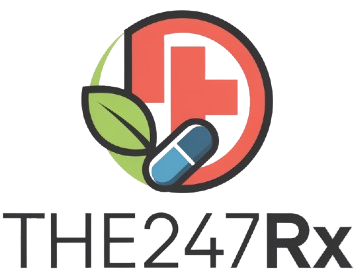 Everyone knows someone who drinks. Maybe it’s social, maybe it’s celebratory.
Everyone knows someone who drinks. Maybe it’s social, maybe it’s celebratory.
But when that occasional glass becomes a regular need, and when stopping feels impossible, that’s could be Alcohol Use Disorder (AUD).
AUD isn’t just about having too many drinks on a Friday night. It’s a chronic, relapsing condition that affects millions worldwide.
Believe it or not, around 400 million people worldwide, that’s roughly 7% of everyone aged 15 and up are living with alcohol use disorders, according to the a report from the World Health Organization (WHO). Yeah, it’s that common.
And the effects can be devastating. It hits your health, your relationships, and your daily life like a freight train.
So if you’re here to understand what it is, what causes it, how it shows up in the body and mind, and what can be done about it, you’re in the right place.
So, what exactly is Alcohol Use Disorder?
In simple terms, AUD happens when drinking becomes a habit you can’t shake, even when it’s clearly causing problems.
We’re talking about a pattern where alcohol starts taking over:
- You’re drinking more than you planned
- Feeling like you need it
- Struggling with cravings
- Noticing that it takes more and more alcohol to get the same effect
And here’s the kicker: even when you want to stop, something keeps pulling you back in.
It’s not just a physical thing either. AUD disturbs your mental and emotional space. That means feelings of shame, guilt, even isolation can creep in.
You might start slipping at work, avoiding friends or family, or putting yourself in risky situations.
Spotting these early can make a huge difference. The sooner you act, the better your chances of steering things back on track.
There’s no common reason for why someone develops AUD
It’s not as simple as blaming willpower, or the lack of it. It’s a mix of your genes, your environment, and what’s going on inside your head.
Let’s talk genetics first
If alcohol problems run in your family, you’ve already got a higher chance of dealing with it yourself.
Your brain’s unique wiring and how it reacts to alcohol also play a big part.
Now throw in environmental stuff
Stress from work, financial pressure, peer influence, or tough personal situations. And suddenly that drink at the end of the day turns into five.
Every day.
Add in mental health struggles like anxiety or depression
 That’s when things can spiral fast. Because now alcohol is being used to numb the pain, which only makes everything worse in the long run.
That’s when things can spiral fast. Because now alcohol is being used to numb the pain, which only makes everything worse in the long run.
If you can spot those red flags early, whether it’s in yourself or someone close, you have a shot at stepping in before things get too far.
What happens when alcohol takes over: we’re not just talking hangovers.
When alcohol becomes more than just an occasional drink, it starts to mess with every part of your life. Let’s not sugarcoat it:
Your body pays the price, big time
It’s especially brutal on your liver. We’re talking about serious stuff here:
- Cirrhosis
- Fatty liver
- Hepatitis (yes, that too)
And your heart? Not off the hook either. Long-term drinking can lead to high blood pressure, irregular heartbeat, or worse.
Your brain’s not spared either. Over time, alcohol can actually damage brain function, mess with your coordination, and cloud your memory.
AUD doesn’t stop at the physical
Mentally, it throws you into a storm of mood swings, anxiety, and sometimes depression that feels like it’s taken over.
Relationships start to suffer and work becomes a struggle. The things that used to matter might suddenly feel like they don’t.
Then there’s the other side, the one that hits your wallet, your family, and your future
Financial stress from job loss or spending, legal trouble from things like DUIs, and emotional strain from broken relationships. We’re no longer talking about just one area of life that’s affected, it’s already all of them.
There’s no single fix for AUD but there are options, and good ones, too
Most successful treatment plans mix medications, therapy, and steady support. Think of it as a three-pronged plan to finally take back control.
Medications that help (yes, they exist)
Let’s start with the pharmacy side of things. One of the heavy-hitters here is Naltrexone. It works by shutting down the feel-good response alcohol normally triggers in your brain.
That means fewer cravings, and less temptation to drink again.
Now, it doesn’t do the job alone. But when taken as part of a bigger plan, it can really make a difference.
Other players in the mix? Acamprosate, which helps keep your brain chemistry balanced, and Disulfiram, which basically makes drinking an awful experience.
Each comes with pros and cons, so it’s all about what fits you best.
While medication works on the body, therapy tackles the mind
Cognitive Behavioral Therapy (CBT) is a big one. It helps you spot those mental triggers, the ones that push you toward the bottle and reroute them.
Motivational interviewing is another powerful tool. It’s all about strengthening your desire to change and keeping that fire lit.
And don’t underestimate group therapy. Programs like Alcoholics Anonymous provide support from people who get it, because they’ve been there.
The combo that works best
Want better odds at staying sober? Combine the two medication + therapy. It hits both the physical and emotional roots of addiction, and it doesn’t stop there.
Relapse prevention, coping skills, long-term support, it’s all part of the package.
There are ways to stop AUD from getting that far
#1 Catch it early
If your drinking habits are starting to raise red flags, don’t wait. Early action matters:
- Talk to someone
- Ask questions
- Get help before it turns into something harder to shake
#2 Make healthier choices
Sounds simple, but it works. Eating right, staying active, and sleeping well may not seem like AUD-busting strategies, but they seriously help.
Your body handles stress better, and your mind stays clearer.

Mindfulness, breathing exercises, yoga, whatever helps you manage stress in a healthier way, give it a shot. Alcohol doesn’t need to be your go-to for coping anymore.
#3 Lean on your people
Whether it’s family, close friends, or a support group, surround yourself with folks who get where you’re coming from and want to see you win.
Connection is powerful. Feeling supported can be the difference between relapse and recovery.
AUD doesn’t just affect one part of your life
But the good news? Recovery doesn’t have to be a lonely path. With the right mix of tools, support, and mindset, it’s absolutely possible to take your life back.
As Alcoholics Anonymous reminds us from their Twelve Steps,
“We admitted we were powerless over alcohol that our lives had become unmanageable.”
